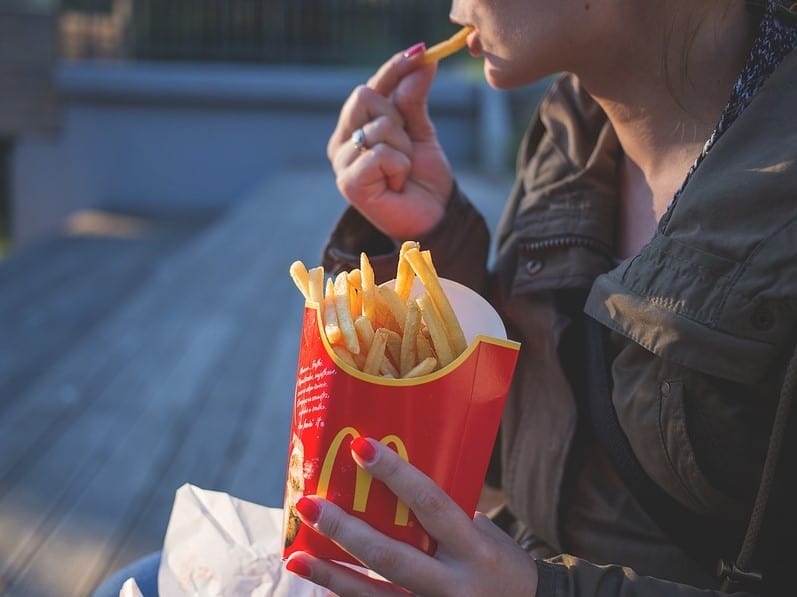I talk a lot about using “healthy fats” in our diets but the unhealthy fats aren’t mentioned as often. I think when we understand why something is unhealthy we’re more likely to avoid it in our diets. One of these unhealthy fats is Trans fat. Many people think “just occasionally” is fine, but it’s amazing how often “occasional” creeps into our lives.
Trans fats and processed vegetable oils are found in almost every packaged food and are linked to many health conditions – compromised digestion, pre-diabetes, heart disease, obesity, and cardiovascular events. Is this really worth the risk?
Even the FDA gets it – back in 2006, the FDA issued a regulation that required manufacturers to disclose the amount of trans fats in the nutrition facts of packaged foods. However, it allowed companies to claim “zero trans fats” even if there is up to a half gram of trans fat in the food. It is often listed as “partially hydrogenated oil” or “shortening” on labels. Here’s the kicker – many foods don’t come with labels, such as those sold in bakeries, cafeterias, schools, and restaurants. We are still consuming significant amounts of this extremely toxic hidden trans fat.
To their credit, in 2015, the FDA set a compliance date of 3 years for companies to either reformulate their products without partially hydrogenated oils and/or petition the FDA to permit specific uses of these oils. So better days may be coming but in the meantime it’s up to us to choose wisely.
What are Trans Fats?
Trans fats have a different molecular structure that causes them to behave differently on the shelf and in your body – they stick and clump together inside the arteries, are very stable, have a long shelf life, are a significant risk factor for cardiovascular events and raise bad LDL cholesterol and lower good HDL cholesterol.
The worst type of trans fat is the synthetic form that is created as a result of oil hydrogenation. Hydrogenation is a process of driving hydrogen atoms into a fatty acid to saturate the fat with more hydrogen atoms to make it more stable, giving the oil a longer shelf life. The more saturated the fat, the stickier it becomes and the more challenging it is for the body to digest. These man-made saturated trans fats have a longer shelf life, are more stable, more solid, and much less digestible.
These Trans fatty acid chains, which are mostly man-made, have their double bonds on the opposite sides of naturally occurring trans fats. The resulting product is much harder for the body to process and, in turn, raises LDL cholesterol and lowers HDL cholesterol and therefore linked to cardiovascular risk.
Dangerously Over the Limit
According to the Harvard School of Public Health, trans fats kill tens of thousands of Americans each year, and they recommend that consumers completely avoid them. The American Heart Association deems 2.0 grams (or less than 20 calories) per day to be the limit for safe consumption of trans fats. However, according to the FDA, the average American still consumes 5.6 grams of trans fats per day, and according to the American Heart Association (AHA), average daily consumption may be over 12 grams a day.
In other words, just over 4 servings a day of certain packaged foods, which may not even list trans fats on the label, will put you over the recommended safety limit. You may be thinking that you hardly ever eat four packaged foods per day, but remember, serving sizes are often deceptively small in processed foods, and it’s easy to eat two or three servings without realizing it. Most people exceed the safe range eating multiple serving sizes of a “zero trans fat” bag of chips, crackers, or a handful of cookies. Keep in mind that even health food store brands may contain these harmful fats.
Where Trans Fats Hide
Here is just a partial list of foods containing synthetic trans fats:
- Baked Goods
- Bread
- Cakes & Frosting
- Cereals
- Candy
- Cookies
- Crackers
- Fast Foods
- French Fries
- Fried Foods
- Ice Cream: some brands have trans fats
- Lard: some brands have trans fats
- Margarine: most brands have more than 35% trans fat
- Peanut butter
- Pies
- Pizzas
- Popcorn
- Potato Chips
- Puddings
- Vegetable Shortening
What You Can Do
- Sauté veggies in broth or with olive oil at low to medium heat.
- Dry roast veggies and, if desired, dress with oil once they come out of the oven.
- Use coconut oil, avocado oil, butter or ghee for higher heat cooking.
- Avoid packaged and processed foods.
- Avoid fast foods and fried foods.
Reducing your risk of disease is possible, take charge and say no to things that we know increase risk!


